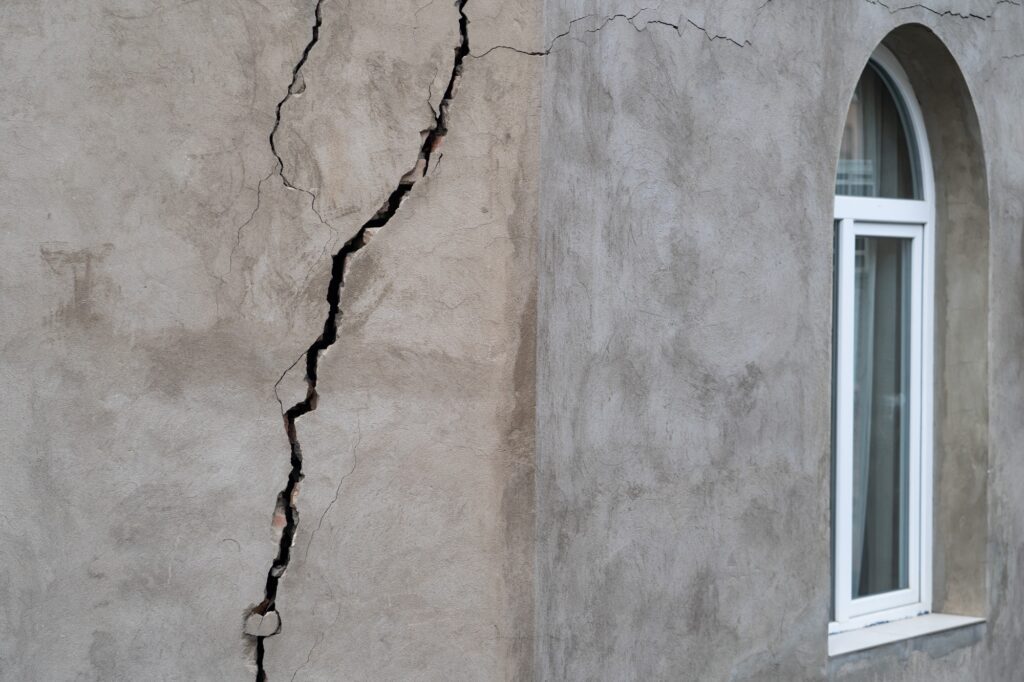Make the Critical Choice: Foundation Repair vs Foundation Replacement
Table of Contents
ToggleIf you’ve noticed cracks in the walls, uneven floors, or doors that no longer close properly, you may be wondering, “Should I repair the foundation or replace it entirely?” This decision isn’t just about cost. It’s about safety, long-term value, and protecting the structural integrity of your home. Read on to learn the difference between foundation repair vs foundation replacement, when each option makes sense, and how to decide what’s right for your home.
When to Consider Foundation Repair
1. Presence of Minor Surface Cracks
- Small cracks are like tiny leaks in a boat. They don’t sink it, but shouldn’t be ignored. Repairing these early, often by sealing or injecting epoxy, can stop problems from getting worse. You’ll save time and money now and avoid bigger headaches later.
2. Walls or Floors Slightly Uneven
- If doors and windows open with a little resistance or floors feel slightly uneven, it often means the foundation has settled unevenly. Professional methods, such as slabjacking or piering, can lift and stabilize the foundation without completely removing it.
3. Occasional Basement Dampness
- A little moisture after heavy rains is common, but it doesn’t always mean trouble. Improving drainage, sealing cracks, or installing a sump pump are typical simple fixes that fall under foundation repair.
Managing water around your home through proper grading, gutters, and sealants can help prevent long-term basement moisture problems.
When to Consider Foundation Replacement
1. Major Cracks (wider than ⅛ inch) That Keep Growing
- If you see large, deep cracks with chunks missing, or new cracks appearing, this indicates serious movement. A full foundation replacement ensures a safe, stable base for your home.
2. Walls That Lean or Bow Inward
- When basement walls bend or bulge, it’s often due to soil pressure pushing them inward. Repairing can sometimes help, but often, the long-term solution is to replace or rebuild that part of the foundation.
3. Section of House Sinking Significantly
- If parts of your home are sinking, especially near corners or heavy walls, that means the ground beneath is no longer supporting it. Replacement with new footings and foundation walls is often necessary to permanently fix the issue and prevent further damage.
4. Old Foundation Materials
- Foundations built decades ago with primitive methods or poor-quality materials (like unreinforced stone or crumbling brick) often don’t meet modern safety standards. They may be too weak to repair and should be replaced.
Foundation Repair vs Replacement: Which Option is Right for You?

-
Some cracks in your wall are normal and not a cause for concern. Others can be a sign of a big issue. Look at the crack’s size, direction, and whether it’s growing. If you are ever unsure, ask a professional for help. If you see signs that your foundation might be damaged, don’t wait. The best way to decide between foundation repair vs foundation replacement is to have a professional assessment. A qualified expert can inspect the issue and guide you toward the right solution.
They can tell whether the damage is merely surface-level or a deeper structural issue, ensuring you don’t waste money on the wrong solution. Moreover, professional foundation repair experts know which techniques, like piering, slabjacking, sealing, or replacing, are best for your foundation.
Our experts at Crack-X will inspect your property and take the right steps to fix your foundation. Crack-X is a civil structure foundation repairs company proudly serving Maine and New Hampshire. We fix foundation cracks using trusted methods and quality materials to ensure long-lasting results. Whether you’re dealing with minor cracks or need help deciding between foundation repair vs foundation replacement, our team is here to help. Call us today at (877) 727-2259 for a free consultation.

